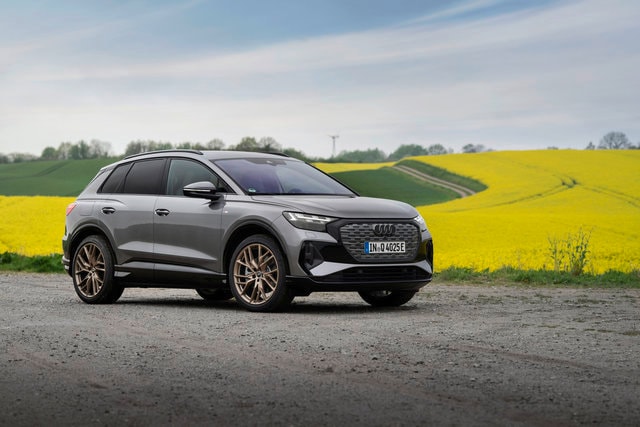
There are more and more electric vehicles arriving on the market than ever before, and these are joined by an extensive collection of plug-in hybrid vehicles as well. To understand the difference between plug-in hybrid vehicles and electric vehicles, we must first start by looking at the different types of Audi vehicles available with each powertrain.
Audi electric vehicles
Audi fully electric vehicles include the new Audi e-tron GT sedan, the impressive new Audi Q4 e-tron, and the Audi e-tron SUV.
Audi plug-in hybrid vehicles
Audi was one of the first luxury automakers to introduce plug-in hybrid vehicles to its lineup. Today, Audi offers an impressive range of plug-in hybrid luxury cars and SUVs that include the Audi Q5, Audi A7, and Audi A8.
Differences between plug-in hybrid Audi vehicles and fully electric vehicles.
A plug-in hybrid vehicle is a vehicle that has both a traditional gas engine as well as an electric motor. This electric motor is powered by a larger battery than what you would normally find in a normal hybrid, meaning that it has enough power to propel the vehicle on electric power alone over a short distance. This distance can range from 20 km to over 40 km depending on conditions and the size of the battery. In other words, you keep the advantages of having a gas engine in a PHEV vehicle, but you also have the ability to do all or most of your daily trips without needing a single drop of fuel. This vastly improves fuel consumption and efficiency.
Electric vehicles do not have a gas engine. They only offer an electric powertrain that you charge at home using a level II charger or on the road using a faster level III chargers. You traditionally get over 400 km of range in a fully electric vehicle and you will never again have to worry about putting gas in your Audi. You also get better performance and quicker accelerations.
Ultimately, the right choice really depends on your needs. We can help you find the right new Audi electric vehicle or plug-in hybrid vehicle for you today.
Contact Us